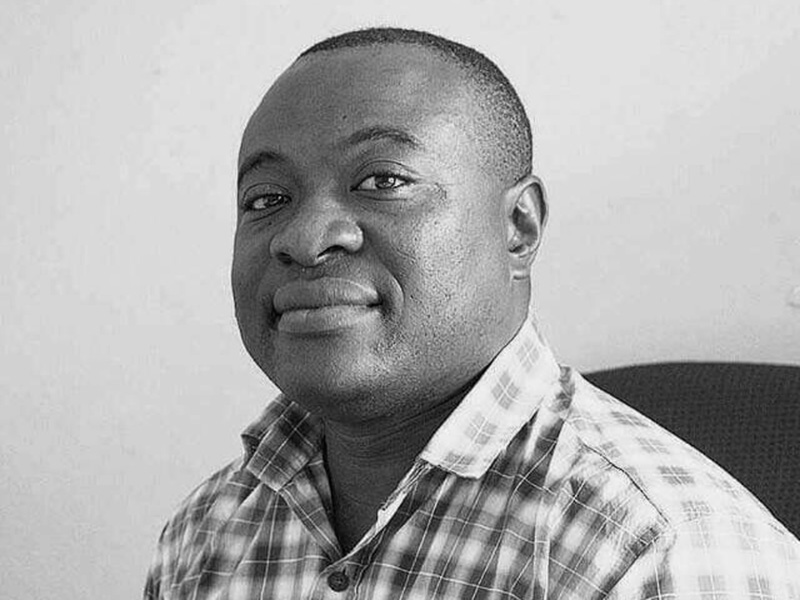(Editor’s Note: In what is being described as a bloodless coup, the Zimbabwe military took President Robert Mugabe into custody Wednesday (Nov. 15) and it appears that the strongman’s 37-year reign has ended.)
HARARE, Zimbabwe (RNS) — Shunned by family, scorned in state media and deemed “worse than dogs and pigs” by President Robert Mugabe, gay people in Zimbabwe often find their country’s churches just as hostile.
And many gay men and women living with HIV say their condition affords them no more empathy from religious leaders, whom, they had hoped, would provide solace. Some contend it can make it even harder to be welcomed by a church.
“My girlfriend, Oscar Gumbo, passed away last year at the age of 23. He succumbed to AIDS,” said Liberty Siziba, 26, speaking of his former partner. Siziba is HIV-positive and lives in the capital, Harare.
“Nobody from our church, the Word of Life International Ministries, bothered to attend his burial service,” he said.
“The church knew we were in a gay relationship, but preachers used to indirectly attack us each time they stood to preach,” he added.

Siziba has tried unsuccessfully to find a welcoming place to worship at more than 20 churches. Typically, he said, other congregants gossip about him and accusingly ask him how he got infected with HIV, the virus that causes AIDS — even though they know his partner succumbed to the disease.
“My worship has been made hard,” he said.
But not all churches in this Southern African nation remain hostile to sexual minorities.
Some, like Grace Tidings International, a Pentecostal church in Harare, have embraced sexual minorities.
To such churches, the fight against AIDS knows no sexuality.
“We have gays and lesbians in our church. We don’t discriminate against them and they even participate in our church programs introduced to fight HIV/AIDS because, yes, we know there are some of them who are also affected and infected by the disease,”said Jameson Tarembwa, the founder and leader of Grace Tidings.
Trish Mugwenhi, a 32-year-old lesbian living with HIV and AIDS, sought and found comfort in the church.
“When I fell seriously sick after my CD4 count fell, my church helped to acquire medication for me outside the country,” she said, referring to her lowered immunity. “I’m here because of what many church leaders like Pastor Tarembwa have done for me and my lover, supporting us despite many other people treating us as outcasts.”
“There is no better home like church,” added Tracy Chiwira, her partner.
Far more typical from Zimbabwe’s pastors is a harsh condemnation of homosexuality and the accusation that gay people are responsible for their own and others’ suffering.
“You shall not lie with a male as with a woman; it is an abomination,” said Denis Sibanda, pastor at The Reformed Church in Zimbabwe, quoting from Leviticus 18:22.
Sibanda blames gay people for AIDS. “God has always condemned such queer relations. If a man lies with a male as with a woman, both of them have committed an abomination; they shall surely be put to death,” Sibanda added, referring to Leviticus 20:13.
One group, Gays and Lesbians of Zimbabwe, is working to repeal anti-gay laws girded by this religious strain of anti-gay beliefs.

Chesterfield Samba, GALZ director
“As GALZ, we believe that the Christian religious beliefs of a majority of Zimbabweans cannot be used as basis to criminalize same-sex relations between consenting adult males or females,” said GALZ Director Chesterfield Samba.
He noted that Zimbabwe is officially a secular nation, with a constitution that calls for freedom of conscience and beliefs.
“Particular religious views of a particular section of the population, regardless whether it is the majority or not, cannot be imposed on Zimbabwean society,” he added.
But they are. While it is not illegal to be gay in Zimbabwe, it is illegal to act on it. And gay Zimbabweans are frequently beaten and arrested. The constitution itself prohibits same-sex marriage.
Siziba is still looking for a church to call home.
“There are times I’m in need of spiritual consolation owing to my HIV condition, but really no one wants to pray with me because to most worshippers, I’m deemed a sinner owing to my sexuality,” Siziba said.
(Jeffrey Moyo is a Zimbabwean freelance journalist.)





